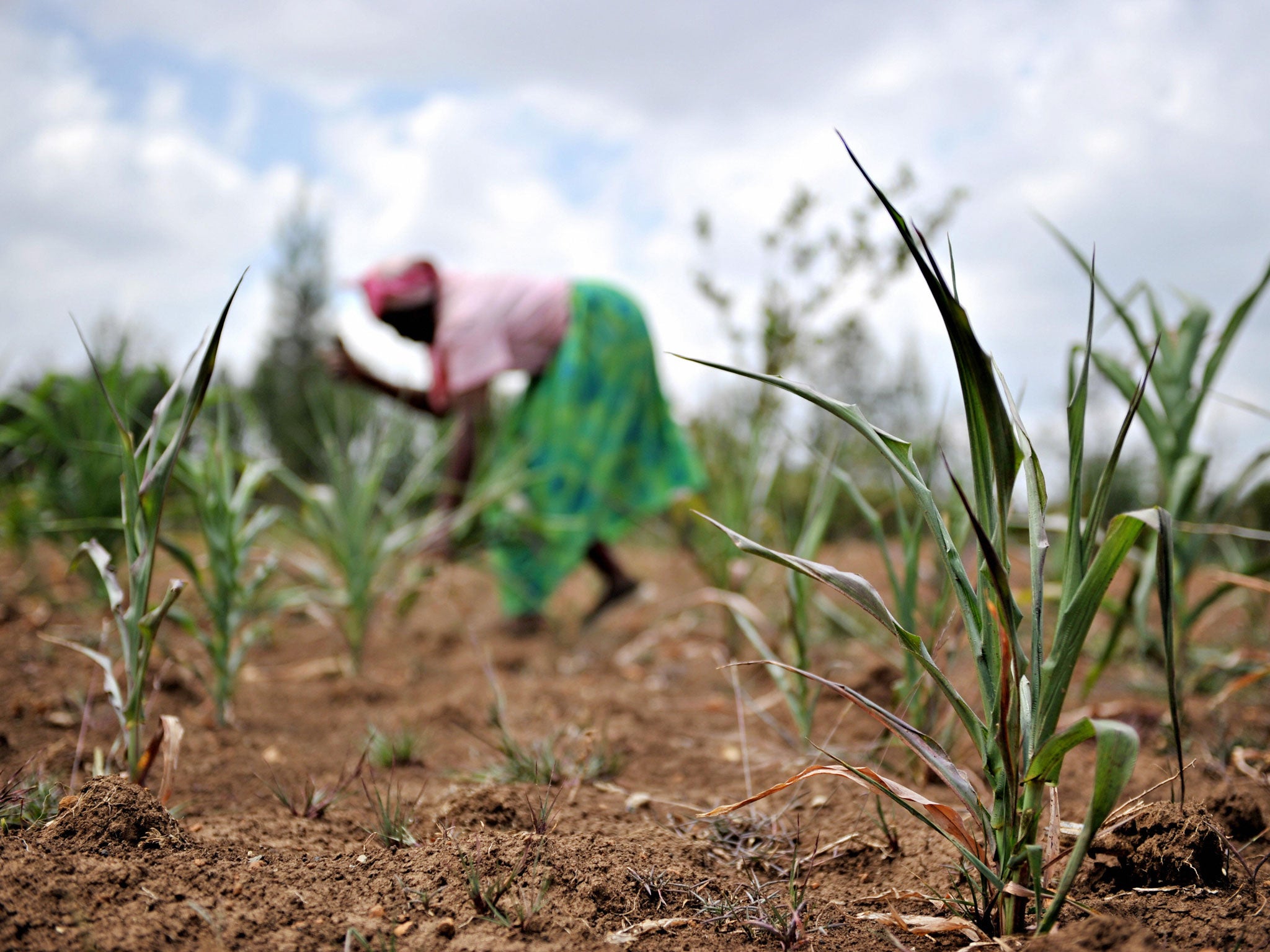Aid groups warn of growing hunger and disease as planet warms

The potentially devastating effects of climate change on future generations are revealed today by two British aid groups, before a crucial UN report due out this week.
On Friday the Intergovernmental Panel on Climate Change (IPCC) is set to unveil its latest report on global warming. It is expected to show researchers’ increasing confidence that humans are the main cause of climate change, largely through use of fossil fuels.
In a report on food security published today, Oxfam claims that climate change could leave one in five people worldwide at risk of hunger by 2050. This will increase child malnutrition by 20 per cent, it says.
The charity also states that global yields of maize and wheat are down 3.8 and 5.5 per cent respectively, compared with what they would be without climate change, and that crop yields could fall by between 10 and 20 per cent by 2050.
The increase in extreme weather patterns due to global warming could also cause more crop failures, Oxfam says. Research commissioned by the group shows that the average price of staple foods could double in the next two decades.
In a separate report, Unicef UK says babies born in 2013 will feel the worst impacts of climate change in 2030. It points out that more than 600 million children live in the 10 countries most vulnerable to climate change, including India, Mozambique and the Philippines.
The group says climate change is expected to increase child killers such as malaria and diarrhoea, while global economic losses from floods, storms and landslides are predicted to reach £122bn a year by 2030, increasing the economic burden on today’s children.
The IPCC’s report is also expected to show that humans have burned around half a trillion tonnes of carbon since the industrial revolution, and that the total could reach one trillion tonnes in the next few decades. If humanity is to have more than a 50:50 chance of keeping global warming below the 2C level beyond which its effects would be ruinous, that total must not be exceeded.
Subscribe to Independent Premium to bookmark this article
Want to bookmark your favourite articles and stories to read or reference later? Start your Independent Premium subscription today.

Join our commenting forum
Join thought-provoking conversations, follow other Independent readers and see their replies